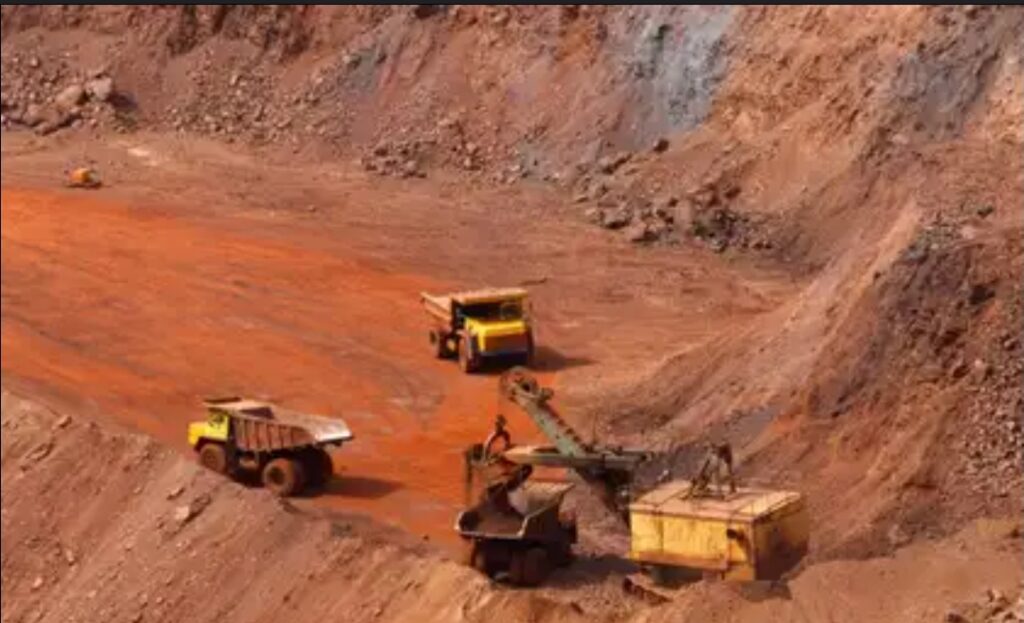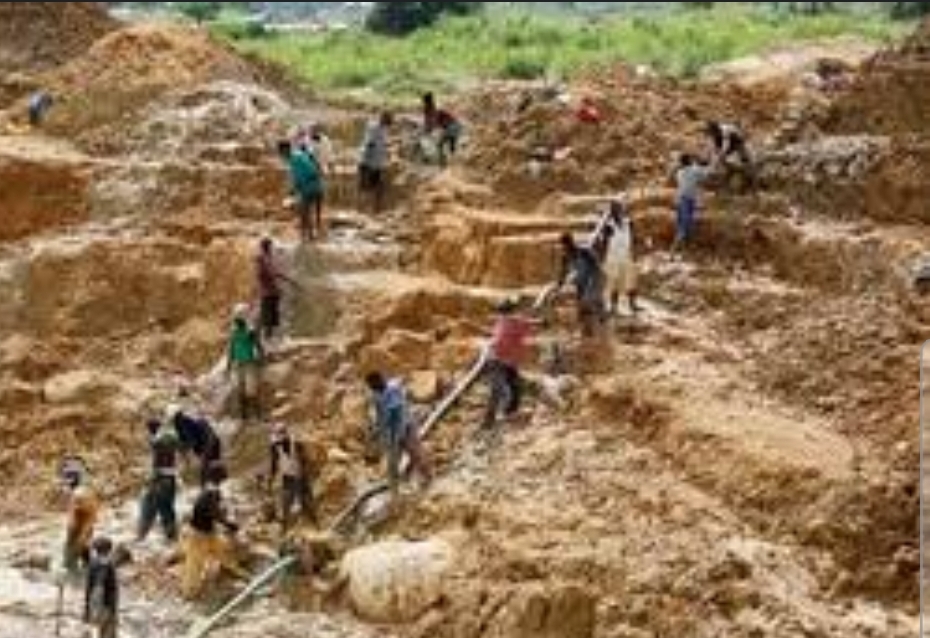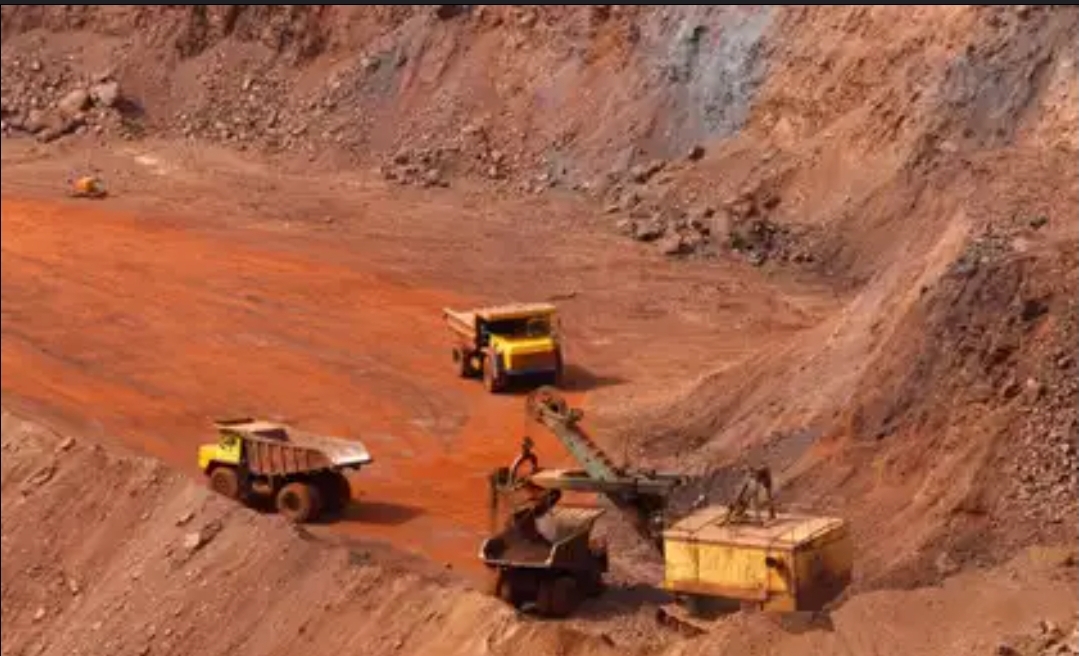ENOUGH IS ENOUGH!
…SIERRA LEONE MUST OWN ITS MINES


The recent impasse between Koidu Limited—a subsidiary of the Octea Group—and its workers has once again brought to light the deep-rooted problems plaguing Sierra Leone’s mining sector. Unfortunately, rather than focusing on the legitimate grievances of the workers and the broader human rights concerns, public attention has been diverted by the involvement of the First Lady, turning what is fundamentally a labor and governance issue into a media spectacle. The narrative is being shaped as though it’s a personal dispute between the First Lady and Koidu Limited, rather than a longstanding issue of corporate exploitation and social injustice.
For decades, Koidu Limited, the largest diamond mining company in Sierra Leone, has extracted immense wealth from the country—generating millions of dollars—while local communities continue to live in poverty. The country itself struggles to meet its basic socio-economic needs, and the very workers whose labor fuels the company’s profits are demanding the bare minimum: dignity, fairness, and safety.
The workers are not making new or unreasonable demands. They are simply asking that their contracts, which were signed in US dollars, be honored at the current exchange rate—not at outdated rates from 2016. They are calling for clean drinking water, proper sanitation facilities at the mines, and fair compensation for overtime work. These are fundamental rights, not luxuries. Yet, in response, the company has not only refused to meet these demands but has also opted to lay off over 1,000 Sierra Leonean workers—leaving the town of Koidu in despair.
Sierra Leone’s mining sector is governed by the Mines and Minerals Development Act of 2022, which replaced the 2009 legislation. This Act was a step in the right direction, introducing modern provisions for exploration, mining, and the export of minerals. It emphasizes transparency, accountability, and the socio-economic development of mining-affected communities. It also seeks to align with international best practices while promoting employment and environmental safeguards.
However, the Act lacks one critical component: a clear path for Sierra Leoneans or Sierra Leonean-owned companies to gain ownership or meaningful equity in the country’s mineral resources. Foreign companies continue to dominate the sector, extracting wealth and exporting both profits and procurement opportunities to their home countries—while leaving little behind for Sierra Leoneans.
We have seen a bold shift in mining policy across the region. In Guinea, the transitional government terminated over 50 mining licenses to reset the sector in the national interest. In Burkina Faso, the military government is aggressively pursuing pro-country mining policies aimed at ensuring local benefit. Despite being led by military regimes, these countries have shown political will and assertiveness that has gained public admiration.
Even in the United States, former President Donald Trump’s “America First” economic policies were focused on ensuring that American industries and workers benefited first from domestic resources and investments. Why can’t Sierra Leone adopt a “Sierra Leone First” approach?
It is deeply concerning that some foreign investors arrive in the country with nothing, and within a few years of mining our resources, they own multiple private jets while our people still drink from unsafe wells and live without electricity. These companies often bypass local expertise, awarding contracts and jobs to firms from China, the UK, or the US—despite the capacity and talent available locally.
The Koidu Limited saga should be a wake-up call for the government and the people of Sierra Leone. We must think outside the box. No foreign investor should be allowed to operate in the country without entering into a genuine partnership with Sierra Leoneans. Ownership and control must shift toward our citizens if we are to reclaim our economic sovereignty.
As the debate continues over the Tonkolili North iron ore deposits—reportedly richer than the southern fields currently mined by a Chinese company—it is time for the government to reassess its strategy. The so-called Mineral Wealth Fund, currently managed by a Russian national, must be restructured. A fund that is meant to safeguard our natural wealth for future generations should be overseen by qualified Sierra Leoneans with a proven track record of integrity.
We have seen what local ownership can achieve. When the late Moseray Fadika partnered with British-Austrian businessman Frank Timis, Sierra Leonean companies were empowered, and the economy saw a ripple effect across various sectors. The same happened during the tenure of John Bonor Sisay at Sierra Rutile. These examples prove that it is possible—and beneficial—for Sierra Leoneans to have a stake in the country’s mineral wealth.
If Sierra Leone truly wants to benefit from its natural resources, the government must immediately initiate a comprehensive review of all mining agreements. We must usher in a new era of pro-people, pro-country policies that prioritize national development over foreign profit.
The time for lip service is over. It is time to act—and act in the best interest of Sierra Leone.
